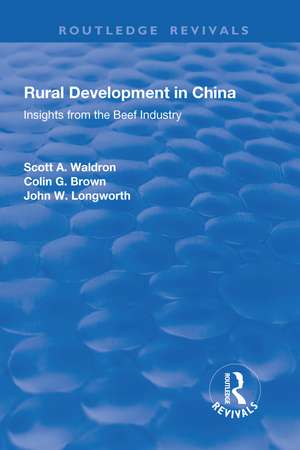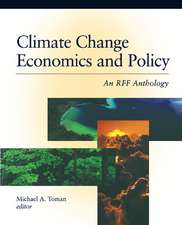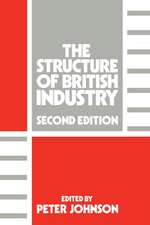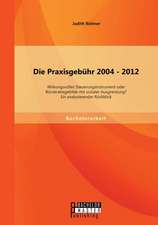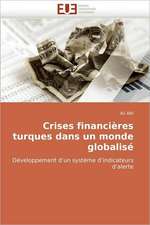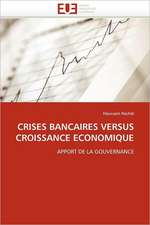Rural Development in China: Insights from the Beef Industry: Routledge Revivals
Autor Scott A. Waldron, Colin G. Brownen Limba Engleză Hardback – 3 noi 2017
| Toate formatele și edițiile | Preț | Express |
|---|---|---|
| Paperback (1) | 218.03 lei 6-8 săpt. | |
| Taylor & Francis – 31 oct 2019 | 218.03 lei 6-8 săpt. | |
| Hardback (1) | 685.35 lei 6-8 săpt. | |
| Taylor & Francis – 3 noi 2017 | 685.35 lei 6-8 săpt. |
Din seria Routledge Revivals
- 9%
 Preț: 767.40 lei
Preț: 767.40 lei - 9%
 Preț: 1004.17 lei
Preț: 1004.17 lei - 9%
 Preț: 934.94 lei
Preț: 934.94 lei -
 Preț: 230.80 lei
Preț: 230.80 lei -
 Preț: 294.72 lei
Preț: 294.72 lei -
 Preț: 258.66 lei
Preț: 258.66 lei - 9%
 Preț: 903.41 lei
Preț: 903.41 lei - 18%
 Preț: 695.85 lei
Preț: 695.85 lei -
 Preț: 296.10 lei
Preț: 296.10 lei -
 Preț: 342.36 lei
Preț: 342.36 lei - 9%
 Preț: 606.35 lei
Preț: 606.35 lei -
 Preț: 309.94 lei
Preț: 309.94 lei - 9%
 Preț: 729.99 lei
Preț: 729.99 lei -
 Preț: 256.94 lei
Preț: 256.94 lei -
 Preț: 230.80 lei
Preț: 230.80 lei -
 Preț: 259.47 lei
Preț: 259.47 lei - 9%
 Preț: 903.80 lei
Preț: 903.80 lei -
 Preț: 153.81 lei
Preț: 153.81 lei -
 Preț: 258.66 lei
Preț: 258.66 lei -
 Preț: 294.91 lei
Preț: 294.91 lei -
 Preț: 200.66 lei
Preț: 200.66 lei -
 Preț: 199.85 lei
Preț: 199.85 lei -
 Preț: 308.78 lei
Preț: 308.78 lei -
 Preț: 295.04 lei
Preț: 295.04 lei -
 Preț: 382.23 lei
Preț: 382.23 lei -
 Preț: 258.66 lei
Preț: 258.66 lei -
 Preț: 343.21 lei
Preț: 343.21 lei - 9%
 Preț: 640.90 lei
Preț: 640.90 lei - 9%
 Preț: 605.71 lei
Preț: 605.71 lei -
 Preț: 228.88 lei
Preț: 228.88 lei -
 Preț: 257.67 lei
Preț: 257.67 lei -
 Preț: 245.10 lei
Preț: 245.10 lei -
 Preț: 258.52 lei
Preț: 258.52 lei - 5%
 Preț: 231.22 lei
Preț: 231.22 lei -
 Preț: 368.93 lei
Preț: 368.93 lei -
 Preț: 246.37 lei
Preț: 246.37 lei - 9%
 Preț: 764.34 lei
Preț: 764.34 lei -
 Preț: 258.66 lei
Preț: 258.66 lei -
 Preț: 326.26 lei
Preț: 326.26 lei -
 Preț: 286.98 lei
Preț: 286.98 lei - 8%
 Preț: 418.23 lei
Preț: 418.23 lei -
 Preț: 260.85 lei
Preț: 260.85 lei -
 Preț: 267.15 lei
Preț: 267.15 lei -
 Preț: 295.62 lei
Preț: 295.62 lei -
 Preț: 262.64 lei
Preț: 262.64 lei - 9%
 Preț: 638.61 lei
Preț: 638.61 lei -
 Preț: 341.55 lei
Preț: 341.55 lei -
 Preț: 381.17 lei
Preț: 381.17 lei -
 Preț: 294.53 lei
Preț: 294.53 lei -
 Preț: 294.72 lei
Preț: 294.72 lei
Preț: 685.35 lei
Preț vechi: 917.08 lei
-25% Nou
Puncte Express: 1028
Preț estimativ în valută:
131.18€ • 136.43$ • 109.93£
131.18€ • 136.43$ • 109.93£
Carte tipărită la comandă
Livrare economică 14-28 martie
Preluare comenzi: 021 569.72.76
Specificații
ISBN-13: 9781138712782
ISBN-10: 1138712787
Pagini: 298
Dimensiuni: 152 x 219 x 24 mm
Greutate: 0.71 kg
Ediția:1
Editura: Taylor & Francis
Colecția Routledge
Seria Routledge Revivals
Locul publicării:Oxford, United Kingdom
ISBN-10: 1138712787
Pagini: 298
Dimensiuni: 152 x 219 x 24 mm
Greutate: 0.71 kg
Ediția:1
Editura: Taylor & Francis
Colecția Routledge
Seria Routledge Revivals
Locul publicării:Oxford, United Kingdom
Cuprins
Contents: Introduction: The challenge of industry and rural development. Industry Dynamics: Market, household, enterprise and administrative reforms; Industry organisational structures and participants; Industry growth and segmentation; Emerging market structures and industry integration. Institutional Dynamics: Types of institutions; Horizontal government structure; Vertical hierarchy. Policy Dynamics: Production support: critique of a specific industry policy; Value adding and vertical integration; Market support systems; Poverty alleviation and environmental policies; Food safety and inspection. Conclusion: Forging industry and rural development in China; Bibliography; Index.
Notă biografică
Scott A. Waldron, The senior author, is Research Officer at the School of Natural and Rural Systems Management at the University of Queensland, Australia.
Recenzii
'Phenomenal growth in meat consumption propelled by dietary diversification is a critical structural change in developing countries over the past 20 years, especially in China. Few works explore the implications for rural development objectives. This book succeeds admirably for China's beef sector, integrating rich insights from industrial organization theory, models of institutional change, and analysis of policy reforms affecting human well-being. It will be of wide interest to analysts and practitioners of economic development, including those inside and outside the livestock sector that wish to understand the critical institutional issues involved in the rapid growth of a new rural industry.' Christopher L. Delgado, International Food Policy Research Institute, USA. 'There is much to think about in this book, and the use of a single industry...to address broader issues helps clarify the complexity of China's socialist economy as it currently operates...one of the strengths of this volume is its structure and internal organization.' China Review International
Descriere
This title was first published in 2003. The greatest challenge facing China today is to curb the growing economic divide between urban and rural people. Achieving this requires that the rural economy in general, and rural industries in particular, transform rapid growth into sustained development. However, policy makers are struggling to modernise rural industries, such as the cattle and beef industry, especially in a way that contributes to rural incomes.
